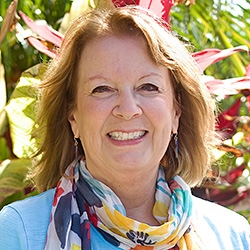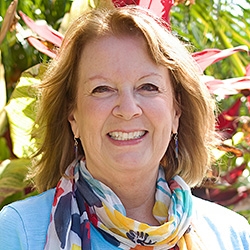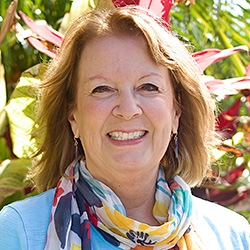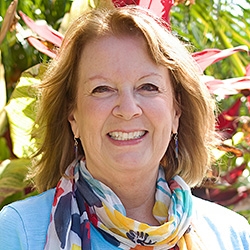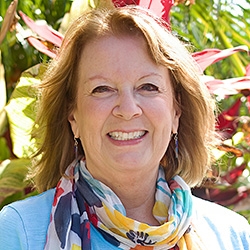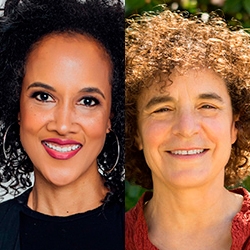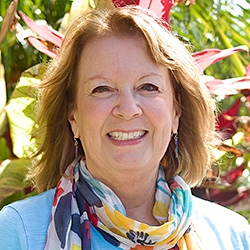

Search Results: openness
-
Conflict is a normal and natural part of life. To varying degrees, it happens whenever two or more people consistently spend time together. Resolving conflict effectively and peacefully, in a way in which all parties feel respected and valued, does not feel natural for those of us who grew up with punitive, adversarial, or avoidant approaches to conflict. Eric offers some tips for approaching conflict.
-
This 5-session telecourse recording is designed to support you in learning what makes giving and receiving feedback challenging and how you can turn these experiences into opportunities for learning, connection, and effective functioning.
-
Recalling Krishnamurti, Marshall referred to the capability of distinguishing observation vs observation mixed with evaluation as "the highest form of human intelligence." Read on for an exercise to help practice the skill of observation in combination with mindful walking.
-
Listen as Mary Mackenzie shares an eight step path to create your own NVC learning activities, based on your own NVC learning experience. In this session, Mary uses the value of requests and observations as teaching examples.
-
Building your body and mind awareness can help you better regulate/calm your emotions. Regular self-empathy will help you better regulate your emotions as well as increase your body and mind awareness. If you are not aware of amygdala activation (fight/flight/freeze response), you will react instead of responding with choice. Use this eight-step process to develop your self-empathy/regulation skills.
-
Don’t know how to effectively work through differences with others in your organization? You are not alone… Like most of us, you simply lack the training and skills – and that’s what you’ll acquire listening to this course recording. Join Miki and learn specific tools and tips that work – for everyone!
-
Trainer Tip: Censoring oneself to maintain peace may seem easier, but it actually requires significant energy. You can free up that energy you use to deny and stuff down your feelings, needs, desires, truth, and figure out and adjust to what others want. Embracing authenticity and expressing true feelings and needs can lead to a liberating experience, unlocking joy, love, and endless possibilities.
-
When we have privilege, we can have access to resources resulting from legal or social norms related to membership in a group -- independent of any (in)action, awareness of the disparity, the potential benefits to us, or the costs to others. Unhelpful ways of engaging with privilege are: denial/invisibility, guilt/shame, defensiveness, and entitlement. Helpful ways of engaging are: owning privilege, learning about privilege, opening to feedback, and stewarding privilege for benefit of all. To be helpful we need to engage with necessary (rather than unnecessary) discomfort.
-
This one page colour handout illustrates the focus options or intention options for connection: empathy (verbal and non-verbal), self expression, and self connection (opening our heart to self and/or others). It also offers some suggestions for how to say these things to self and others.
-
Trainer Tip: Anger is a prominent call to gain our attention. Mary explains why it's worth heeding that call.
-
Do you ever give up on disagreements, temporarily or permanently? Do you ever disengage from conflict because you’re certain the situation can't be resolved? Sometimes this applies. And consider how you may be giving up too soon, which decreases the possibility for resolution. This speaks to your level of commitment. How committed are you to valuing another’s needs and to finding resolution?
-
Trainer Tip: The Nonviolent Communication process strengthens our ability to remain human, even under trying conditions. It provides tools to promote peaceful living on a daily basis. Be aware today of the times that your behaviors or attitudes promote distrust and self-protection, rather than compassion and humanity.
-
- Find your voice in response to words you hear as racist
- Build bridges across significant differences of opinion
- Become a powerful ally for the racial justice movement
-
Itzel Hayward and Kathy Simon's course is designed to help you step into your power and create a more just world while staying aligned with compassion and empathy.
Using practices and insights based in Nonviolent Communication, this five-session series explores how to challenge racist words and ideas in ways that are most likely to encourage others to openly reflect on their beliefs and behavior. This is an important step in making real change.
You will come away with an increased ability to:
- Stay grounded in conversations that can be painful and upsetting
- Respond meaningfully to perspectives that are different from your own
- Find words to express clearly and passionately why it matters to transform social systems
-
In a recent vacation in a Mexican village, I was surprised to find myself in the midst of a community in mourning. Two days before I came, a 21-year-old girl had died in a car accident. Everyone in the town knew her and was openly affected by her death.
-
Miki Kashtan reveals how choice is always available, no matter the situation or circumstances.
-
Using his own life experience, Eric explores why we need support from others, what support might look like, and what blocks us from asking for support for our relationships.
-
How do you bring empathy and authenticity to uncomfortable work situations when there are so many layers of difference – especially if your primary reason for working is to feed your family and pay your bills? Listen in as Roxy opens participants' eyes to some of the many layers of difference we all deal with on a daily basis.
-
Living Compassion, for Robert, represents the spirituality that resides in every aspect of Nonviolent Communication. Its foundational principles are represented by three primary qualities or states of being: clarity, compassion and empowerment.
In this course you’ll explore – and practice – how the unfolding of inner clarity opens your way to compassion, which further unfolds into empowerment. Throughout this unfolding process, Robert will include maps and tips for shifting your everyday life from one that is relatively limiting to a life that is both transformative, healing and liberating.
-
Trainer tip: Demands are more likely to limit the possibilities and create distance between people. The trick to asking something as a request is valuing everyone’s needs equally. When you value everyone’s needs equally, then you are more willing to come to solutions that satisfy everyone. It thus opens possibilities and helps build connection.

Quick Links
Subscription Preferences
Stay In Touch!
Looking for ways to keep up with NVC Academy news, get special offers, free resources, or words of inspiration? Here are five ways to stay engaged:




